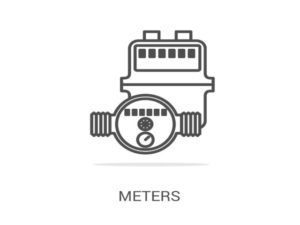by K.T. Weaver, SkyVision Solutions
 While primarily speaking about solar energy yesterday evening at the National Clean Energy Summit in Las Vegas, Nevada, President Obama also naively touted the purported benefits of utility smart meters.
While primarily speaking about solar energy yesterday evening at the National Clean Energy Summit in Las Vegas, Nevada, President Obama also naively touted the purported benefits of utility smart meters.
I prepared a two-minute video clip of the President’s remarks at the Clean Energy Summit (below), but the principal statements mentioned regarding smart meters are as follows:
“Six years ago smart meters were pretty rare. Today 60 million consumers have access to detailed information about how much energy we use, how we use it, when we use it. So we can use that information to change our habits. Use energy more efficiently. Save more money without a whole lot of sacrifice.”
Commentary: The above statements parallel the smart grid industry propaganda narrative that smart meters are being installed to benefit consumers by inundating them with “detailed information about how much energy we use” and to “save more money.” There is no evidence for this. Consumers either through higher utility bills and/or higher taxes pay for the irrational deployment of smart meters with little or no net benefit, while at the same time being exposed to the significant risks related to smart grid technology that have been comprehensively studied and revealed at this website.
Late last year we reported on a new study that concluded that the smart meter rollout was a waste of money. As previously reported:
“We found that initially households enjoyed the novelty factor of the meters, comparing how much electricity different appliances used,” explained Kathryn, “but the interest in the meters wore off after a time.”
“The problem is some behavior won’t change, such as putting on the kettle when you get home from work,” added Kathryn, “People do not use energy for the sake of it – it is a by-product of people’s everyday lives.”
In addition to the statements about how many smart meters are now deployed in the United States, the President last evening also stated:
“We can control our thermostats from our smart phones. New appliances and smart devices can tell when energy prices are cheapest. And do laundry or wash the dishes, or charge our car at those times.”
“We have to lift up some of [the] success stories and the innovations that are taking place. … Oklahoma Gas and Electric is empowering its customers to enroll in smart metering that uses electricity when it’s cheaper, not when it’s most expensive.”
Commentary: The above statements, without mentioning the term, implies the use of “time-of-use” (TOU) rates being implemented to influence consumers on when they utilize electricity, in theory using electricity when it is cheapest. There is little evidence this will work in practice. In fact, in Ontario, Canada, where TOU rates are mandatory, they are considered a complete disaster with the program winning the Government “Waste Award” and smart meters being declared “not so smart.”
In Ontario, smart meters have been used to price the sale of electricity by the time of day in order to shift electricity usage to times of off-peak demand. The Auditor General concluded that “smart meters are ineffective no matter what time you do your laundry.” Here is the audio of this statement about the Auditor General. [Reference: Video available at: https://smartgridawareness.org/2014/12/18/smart-meters-have-failed/ .]
Audio Player
00:00
00:00
Video of President Obama from August 24, 2015:
.
New Study Results on Whether Providing Energy Usage Information to the Consumer Reduces Electricity Consumption
To further substantiate the claim that inundating the consumer with granular usage data does not result in consumers saving money, the conclusions of another recent study will be quoted below. The study is entitled, “Does information feedback from in-home devices reduce electricity use? Evidence from a field experiment.” The actual experimental information was gathered using plug-in devices but can be easily extrapolated for applicability to smart meters as well.
“The purpose of this study is to design and analyze an RCT (randomized control trial) field experiment to understand whether near-real-time plug-level information feedback for households can foster long-term energy conservation.”
“Even though the existing literature has found that real-time information feedback at the household level has the potential to decrease electricity use, our RCT does not support this hypothesis. Instead we find that the possible reductions in electricity use achieved by study participants in our treatment group might be due to other factors, such as salience and a Hawthorne effect.”
“Thus, our significant effects of treatment do not appear to be a result of the near-real-time information provided by the Modlets themselves. We postulate other explanations for our results, which cannot be disentangled in our current study. These include (a) the Hawthorne effect, where participants who know they are in a study may change their behavior based on the additional attention; and (b) that the extensive outreach to the study participants … by the experimenters … and the building management office made electricity use salient (for example, see Pallak, Cook, and Sullivan (1980)) which resulted in behavior changes for these participants.”
“Why were these in-home devices not effective in the intended way? As with programmable thermostats, using these devices requires a significant investment in time, effort, and motivation.”
“After the study, in early 2014, our team contacted a random subset of participants with the aim of disentangling these competing explanations and understanding the results further. In general, participants did not recall many details about the study nor did they recall consciously changing their behavior…”
Thus if people are motivated to conserve energy, they will do so, whether it be due to a personal commitment or knowing one is part of some sort of experiment, but it has little or nothing to do with whether smart meters or some other granular data collection devices are installed for homes across America and elsewhere (at a cost of billions and billions of dollars). Those who to continue to promote smart meters as “empowering consumers” to save money are either extremely naïve or have more sinister motives and are being intentionally deceptive.
Primary Source Material for this Article
“The President Speaks at the National Clean Energy Summit,” August 24, 2015, in Las Vegas, Nevada, viewable at https://www.youtube.com/watch?v=3kagnRMXtLg&feature=youtu.be&list=PLNxwX7r4A556ihEfS2UNyGvkmgUlwDBvM
Smart Grid Awareness article, “Smart Meter Rollout a Waste of Money Says New Study.”
“Does information feedback from in-home devices reduce electricity use? Evidence from a field experiment,” by Shahzeen Z. Attari, Gautam Gowrisankaran, Troy Simpson, and Sabine M. Marxc, December 22, 2014. Refer to: http://www.nber.org/papers/w20809 for more information. Quotation from abstract:
“Decrease in overall electricity use is similar among treatment apartments which received Modlets and those which declined Modlets, and does not specifically occur for outlets with Modlets. This decrease may be due to a Hawthorne or salience effect.”
 While primarily speaking about solar energy yesterday evening at the National Clean Energy Summit in Las Vegas, Nevada, President Obama also naively touted the purported benefits of utility smart meters.
While primarily speaking about solar energy yesterday evening at the National Clean Energy Summit in Las Vegas, Nevada, President Obama also naively touted the purported benefits of utility smart meters.

